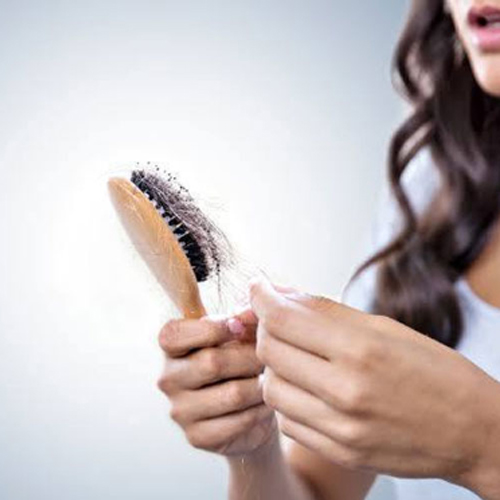Hair loss can be a distressing experience for many, affecting not only your appearance but also your self-esteem. Whether it's due to genetics, stress, or other underlying health conditions, managing hair loss is crucial for maintaining your confidence and well-being. In this blog, we'll explore various strategies for hair loss control, helping you to keep your hair healthy and strong.
What Causes Hair Loss?
Before diving into the solutions, it's important to understand the common causes of hair loss. Some of the primary factors include:
- Genetics: Hereditary hair loss, also known as androgenetic alopecia, is the most common cause, affecting both men and women.
- Hormonal Changes: Conditions like pregnancy, menopause, or thyroid imbalances can trigger hair loss.
- Nutritional Deficiencies: A lack of essential nutrients, such as iron, vitamins, and proteins, can weaken hair and lead to hair loss.
- Stress: Physical or emotional stress can cause temporary hair loss, often referred to as telogen effluvium.
- Medical Conditions: Certain illnesses and medications can result in hair loss as a side effect.
Effective Hair Loss Control Strategies
-
Healthy Diet
- A balanced diet rich in vitamins, minerals, and proteins is vital for hair health. Focus on foods that are high in biotin, zinc, iron, and vitamins A, C, and E. Incorporating leafy greens, nuts, eggs, fish, and fruits can strengthen your hair and promote growth.
-
Proper Hair Care Routine
- Treat your hair with care to prevent further damage. Use a gentle shampoo and conditioner suitable for your hair type. Avoid excessive heat styling, tight hairstyles, and harsh chemical treatments, as these can weaken the hair and lead to breakage.
-
Stress Management
- Since stress is a significant contributor to hair loss, finding ways to manage stress is crucial. Practice relaxation techniques like meditation, yoga, and deep breathing exercises. Regular physical activity can also help reduce stress levels.
-
Topical Treatments
- Over-the-counter treatments like minoxidil (Rogaine) have been proven to help control hair loss and promote hair regrowth. These treatments are often available in the form of a liquid or foam applied directly to the scalp.
-
Prescription Medications
- For more severe cases of hair loss, doctors may prescribe medications like finasteride (Propecia) for men or spironolactone for women. These drugs help slow down hair loss and, in some cases, promote regrowth.
-
Supplements
- Hair growth supplements containing biotin, collagen, and other essential nutrients can support healthy hair. Always consult with a healthcare provider before starting any new supplement regimen.
-
Laser Therapy
- Low-level laser therapy (LLLT) is a non-invasive treatment that uses red light to stimulate hair follicles and promote hair growth. It's available in clinics and as at-home devices.
-
Hair Transplant Surgery
- For those with significant hair loss, hair transplant surgery can be an effective option. This procedure involves moving hair follicles from one part of the scalp (usually the back) to areas with thinning or no hair.
-
Consult a Professional
- If you're experiencing hair loss, it's important to consult with a dermatologist or trichologist. They can diagnose the cause of your hair loss and recommend the most appropriate treatment options for your specific situation.


